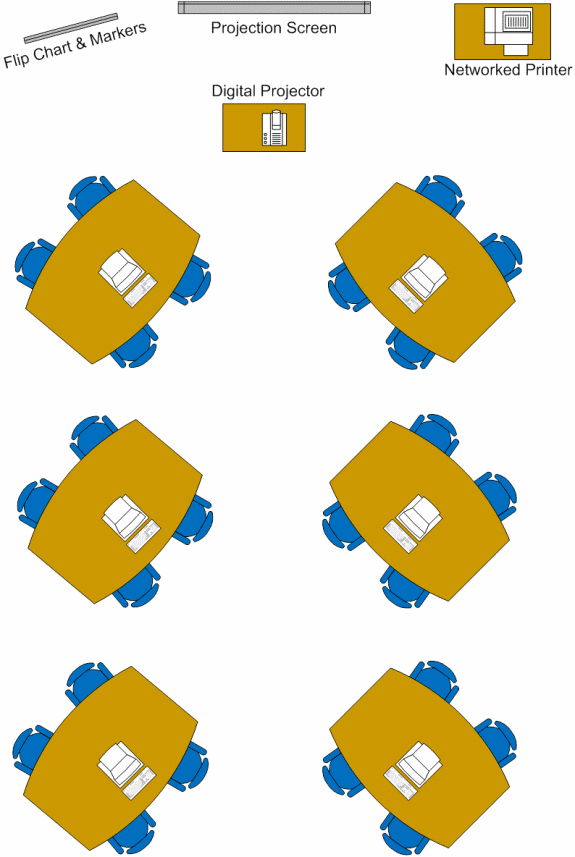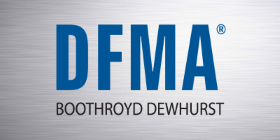DFMA® IMPLEMENTATION WORKSHOP
INTRODUCTION
These application oriented workshops help teams learn and begin using DFMA® Product Simplification and Costing techniques. The workshop begins with an overview of these techniques, their fit with common business practices, and expected implementation benefits. Participants then sequentially learn each technique and immediately apply them on projects important to your company. Expected project benefits are presented by each team to stakeholders and the workshop closes with a review of implementation considerations and support.
WORKSHOP OBJECTIVES
Upon conclusion of the DFMA® Product Simplification and Costing Workshop, participants and stakeholders will:
- Understand how to implement DFMA® across a product’s lifecycle … product development, value stream deployment, and productivity improvement.
- Understand how DFMA® drives concurrent product, process, and supply chain development resulting in significant cost, quality, and time to market benefits.
- Understand DFMA® principles & practices.
- Experience DFMA® software tools applied to real company
projects including:
- Design For Assembly (DFA) product design simplification driving increased innovation to meet and exceed project objectives
- Design For Manufacturing (DFM) product costing to evaluate manufacturing process and material options enabling system level data-based design decisions
- DFM supplier costing to understand “should” and “could” costs and enabling more effective supply chain discussions
- Interpreting and communicating analysis results leading to improved decision making and project results
- Achieve measurable, achievable, “cashable” results from the workshop.
- Identify innovative potential future solutions that feed the company’s R&D funnel.
Who should attend?
DFMA® Product Simplification and Costing workshops are intended to drive significant product cost, quality, and time to market improvements via changes in the design of the system. It’s therefore logical to include representatives from functional groups that typically make up a “cross-functional” product development team including, but not limited to:
- Product Design
- Product Manufacturing/Production (engineers, technicians, associates, etc.)
- Product Quality
- Supply Chain Management
- Product Marketing (i.e. “voice of the customer”)
- Product Field Service
Participants will be divided into small project teams consisting of 3-6 members that will, ideally, also be “cross-functional” but team members can float from team to team as needed given their particular expertise.
Who is responsible for what?
Boothroyd Dewhurst Inc. will supply all of the training materials and software used during the workshop. The client company will supply the venue, computers, audio/visual equipment, and project assemblies. See the checklist provided later in this document.
Project Selection
DFMA® is typically applied to electro-mechanical devices and assemblies. The production volume of these assemblies can span the range from ultra-low (5-10 units per year) to mega-high (tens of millions per year). The size of the project assemblies is limited by the duration of the workshop. For the typical 3-day workshop, project assemblies should be 30-50 unique part numbers in size. For larger, hierarchical product structures, a mix of parts, subassemblies, and their children parts can be included in the project scope. Your workshop facilitator will assist you in identifying and selecting project assemblies.
Outline & Agenda
The workshop Kick-off includes an overview of DFMA® Product Simplification and Costing techniques and their benefits. The rest of the first day is spent learning DFA and applying it on the projects creating a baseline analysis and a pool of redesign ideas. Those ideas are segregated into categories based on perceived risk and deployment effort. One or more redesign concepts are then created from those ideas in each risk-adjusted category. In the second day, participants are then introduced to DFM Concurrent Costing enabling them to cost estimate parts within each of the design concepts leading to system level cost comparisons and the ability to make data-based design decisions. The workshop concludes with the teams presenting their recommendations and expected results. Project stakeholders should be invited to attend the workshop Kick-off and Report-out as their support will be critical for successful DFMA® deployment.
The typical 3-day agenda is shown here however this can be modified based on the needs, desires, and constraints of the client company and/or the associated projects.
Day One
- 08:00 - 08:30 Workshop Kick-off & Introductions
- 08:30 - 09:00 DFMA Overview (Stakeholder attendance is encouraged)
- 09:00 - 10:15 Break
- 09:15 - 12:00 Introduction to the DFA methodology & software basics
- 12:00 - 01:00 Lunch
- 01:00 - 05:00 Baseline DFA software analysis on projects and redesign ideation
Day Two
- 08:00 - 08:15 Review Day One and answer any questions
- 08:15 - 10:00 Introduction to DFM Concurrent Costing
- 10:00 - 10:15 Break
- 10:15 - 12:00 DFMA analysis on workshop projects
- 12:00 - 01:00 Lunch
- 01:00 - 05:00 Continue DFMA analysis on workshop projects
Day Three
- 08:00 - 08:15 Review
- 08:15 - 03:30 Complete redesign development & analysis, develop recommendations & presentation
- 03:30 - 05:00 Workshop Report Out & Wrap Up (Stakeholder attendance encouraged)
Client Workshop Coordinator Checklist

For more details or to schedule a workshop, please contact us.





